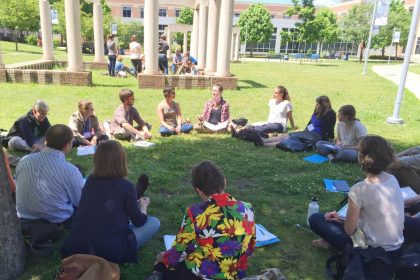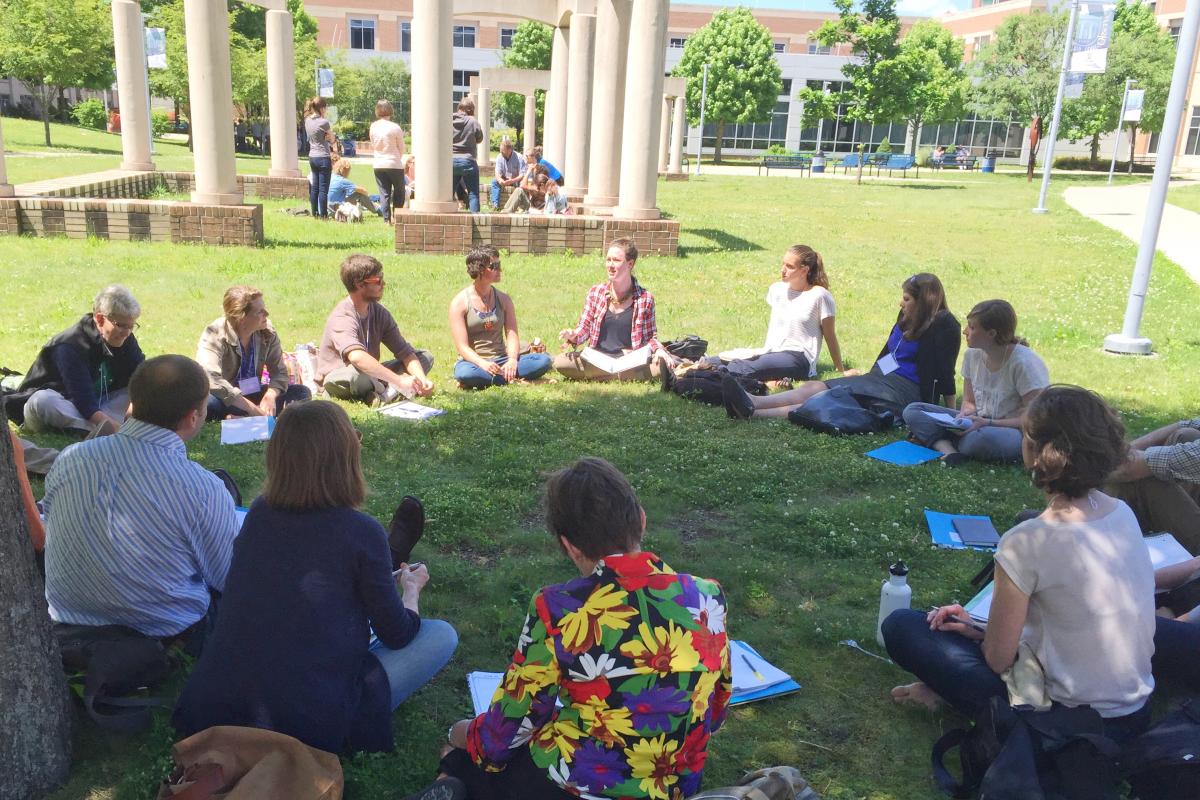
 Fifteen delegates from multiple areas of the NH food system attended the 2016 New England Food Summit, organized by Food Solutions New England (FSNE), which was held June 8th and 9th in Bridgeport, Connecticut. During the Summit, the NH delegates had a chance to meet and discuss the challenges and opportunities facing the Granite State in the efforts to achieve the “50 by 60” New England Food Vision, which strives to have 50% of our food needs met by our region by the year 2060.
Fifteen delegates from multiple areas of the NH food system attended the 2016 New England Food Summit, organized by Food Solutions New England (FSNE), which was held June 8th and 9th in Bridgeport, Connecticut. During the Summit, the NH delegates had a chance to meet and discuss the challenges and opportunities facing the Granite State in the efforts to achieve the “50 by 60” New England Food Vision, which strives to have 50% of our food needs met by our region by the year 2060.
The NH delegation was comprised of several members of existing networks, including the NH Food Alliance, UNH Cooperative Extension, FSNE, HEAL NH, NH Gleans, and Cooking Matters, as well as several independent farmers and food and agriculture entrepreneurs.
In true “Live Free or Die” fashion, the NH delegation chose to forego their assigned conference room in favor of meeting outside on the green lawn of Housatonic Community College’s common area.
Discussion centered around how New Hampshire can best support the New England “50 by 60” Food Vision while simultaneously putting the NH Food Alliance Farm, Fish, & Food Enterprise Viability Initiative into action. At the 2015 New England Food Summit, three opportunity areas for regional collaboration had been identified by NH delegates: 1.) Reciprocal Licensing, 2.) Leveraging Federal Funds, and 3.) A “Buy New England” Campaign. The group discussed what progress had been made on those points since the previous summit, and it was agreed that the creation of the Viability Working Group was a major step toward accomplishing those goals.
Based on the Summit presentations and breakout sessions that the delegates had attended, there was a general feeling that New Hampshire lags behind the other states in the region in many areas of sustainability, mainly relating to policy. For example, NH is the only state in the region without a ban on food waste. It was also felt that New Hampshire’s products do not have the same “brand name recognition” as some of the other states’ (e.g., “Vermont Made”). So, it will be necessary to find a way to increase the emphasis on New Hampshire pride while also increasing access to regional products. Future marketing efforts should be collaborative, leveraging existing state networks including the NH Food Alliance, FSNE, and UNH Cooperative Extension.
It was also agreed among the group that farm viability is necessary for food system viability, and that more farmers need to be involved in future decision-making conversations.
This post was originally published on the NH Food Alliance website.
Melissa Groves is the current Project Fellow for the NH Food Alliance. She is a non-traditional student completing her second bachelor’s degree in Nutrition/Dietetics at UNH.




